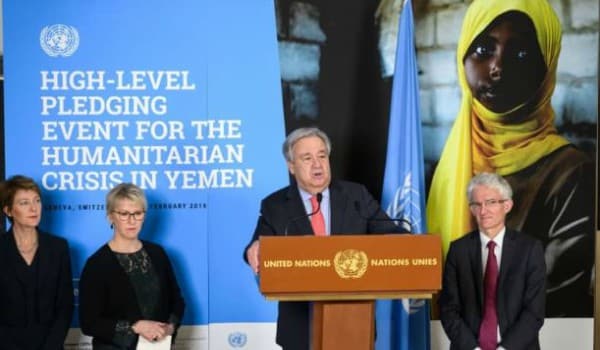
The Inter-Agency Working Group (IAWG) on Reproductive Health in Crises urges governments to uphold promised investments in life-saving reproductive health services for Yemeni women and girls living in humanitarian settings.
In February, IAWG issued a statement encouraging donors to invest in these life-saving reproductive health services during the Yemen High-Level Pledging Event in Geneva. To date, only half of these pledges have been fulfilled.
Without the promised funding, organizations will be forced to close facilities providing reproductive health services. Insufficient funds will discontinue humanitarian assistance and human rights protection programming for Yemeni women and girls.
“Over one million Yemeni women need funds now, or they will lose access to life-saving reproductive health services, putting their lives and those of their babies at risk,” said UNFPA Executive Director Dr NataliaKanem in an August 29 press release.
According to the UN, only three of the 34 humanitarian programmes in Yemen are funded through the end of 2019. Several projects have been forced to close, and many projects have been put on hold. Unless funding is received in the next two months, an estimated 22 humanitarian programmes will close, and more than 19 million people will lose access to health care services, including reproductive health services.
Yemen is currently home to the world’s largest humanitarian operation, which involves the provision of essential services – including reproductive health services – across the country. Of the 14.3 million Yemeni people in acute need of humanitarian aid, there are 3.5 million women of reproductive age. Of these 3.5 million women in acute need of assistance, 572,000 are likely to be pregnant and deliver within the year. UNFPA estimates that up to 85,000 of these pregnant women are at risk of severe complications with immediate danger to their lives unless they have access to life-saving maternal health care.
IAWG echoes calls from UNFPAand the UN Humanitarian Coordinator in Yemen, Lisa Grande, for donors to uphold their financial commitment to ensure the availability of a core set of life-saving services, including reproductive health care, in line with humanitarian standards as well as human rights obligations.
This is not the time to remain silent. Unless Yemen receives much-needed humanitarian funds, millions of lives will remain at risk. This is not the time to stand aside and let women and girls continue to bear the burden of the multidimensional insecurities of war and grave risks to their reproductive health. This is the time for action.
SOURCE: Inter-Agency Working Group (IAWG) on Reproductive Health in Crises, E-mail, 3 September 2019 ; PHOTO: Japan Times, by AFP-JIJI



